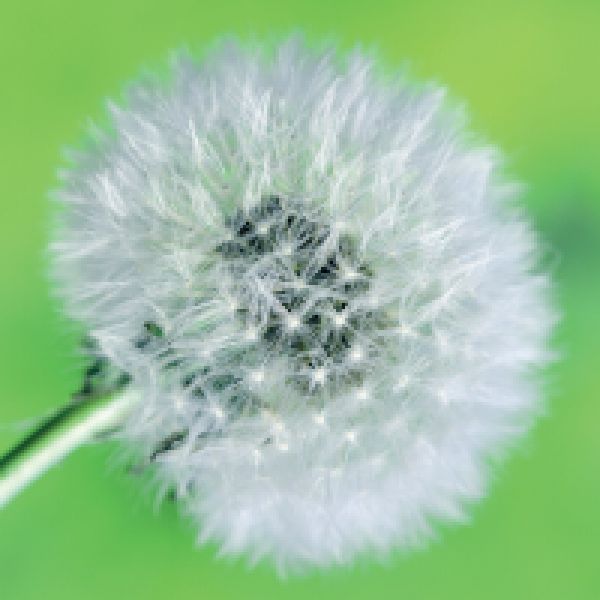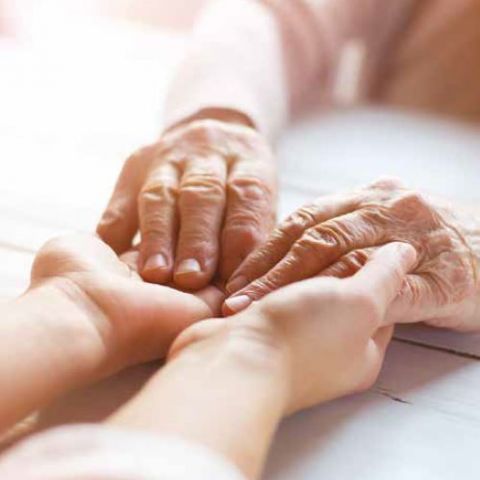More and more people are complaining of sensitive skin which is why you need to know how to calm and alleviate aggravations swiftly and successfully.
Sensitive skin is a common complaint in the UK with a recent population study reporting that a staggering 51.4% of women and 38.2% of men considered their skin was sensitive or very sensitive. From dryness, rosacea or a smattering of spots to chronic skin conditions such as psoriasis, dermatitis and eczema (which is on the rise), add that 27% of Europeans also react to at least one kind of typical allergen* and it’s clear to see we’re in the middle of a sensitive skin epidemic. And that’s not including the millions of people suffering in silence.For some, dermatologists and doctors might hold the answer but for others, therapists and facialists can help pacify the problem thanks to a detailed understanding of the issues, ingredient knowledge and treatment ideas. Read on and you might well be able to help calm this skincare situation down…
POLLUTION PROBLEMS
In order to treat skin-related sensitivity and help your clients, it is important to understand the key contributors behind the problem itself. Of course there are those who are born with sensitive skin but for others, sensitivity is a side effect of wider issues such as the environment.
“I sense that a lot of the symptoms of sensitive skin stem from pollution, (which is at an all-time high), poor diet choices, and of course the stress epidemic,” says David Delport, Global Ambassador and Head of Education at REN Clean Skincare. “When you look at our skin as an indicator of the inside world (our health) and the outside world (our planet) you can easily link sensitivity with the increasing challenges we’re facing in these two areas.”
Time and time again pollution tops the poll for causing us and our skin so much trouble. “Pollution particles can set off sensitivity, which is especially noticeable on the cheeks and around the eyes,” adds Delport. “These particles also trigger free radical damage on the skin’s surface and put undue stress on the skin as it tries to combat and detoxify these agents. We need to start looking at effective pollution shields in the same way we would use and trust a great SPF product for sun damage. More importantly, we need to think further to tackling pollution at its source and take better care of our environment. We seem to think of the ‘us’ and our planet as separate beings. We are one and the same and the only
thing between us is a few millimeters of protection – our skin. It makes a lot of sense to protect both.”
Luckily there are products that can help protect from pollutants and there will be obvious signs in the product names to help clients identify these. Packed with antioxidants that are the biggest fighter of free radicals (that cause the sensitivity), the formulas often form a shield over the skin that catches pollutants before they infiltrate the pores.
GENERATION OVERLOAD
Another issue linked to the increase in skin sensitivity is product overload and misuse. “Anyone who doesn’t properly remove their make-up at the end of the day is doing their skin a real disservice,” advises Delport. “Make-up products that sit heavily on skin can form a shield that prevents us from releasing toxins and may trigger more free radical damage.” Social media posts, a savviness around ingredients and a demand for cosmeceutical grade products means that skin is getting laden with seriously strong actives that not all complexions can cope with. “Think of skin as a factory – by making it work so hard you’re putting it in a state of constant chaos and mixed messages, and instead of achievable healthy results, you might be overstimulating or damaging the delicate skin barrier,” says Delport.
Natasha Dauncey, beauty expert and creator of skincare brand, Apothka (Apothaka.com) agrees. “I think increased sensitivity in large part comes down to product usage,” she says. “This could be using too many products or having too many steps in your routine which increases exposure to more ingredients. It could also be down to the use of highly fragranced products as fragrance allergens are one of the biggest causes of sensitive skin. Plus, active ingredients like retinoids, AHAs, BHA, and Vitamin C although beneficial, do need to be used wisely as not everyone can handle them.” Harsh tap water, smoking and sun damage also come up as sensitive skin causing culprits. “There is still an assumption by many people that sunscreen isn’t needed daily here in the UK but actually this is one of the best ways to protect and keep our skin healthy, especially as UVA is present all year round. It’s not as obvious as the UVB rays that burn but can
cause long-term cumulative damage in terms of sensitivity,” continues Dauncey.
SIMPLE MINDS
With multiple issues on the agenda, is there any way to eradicate skin sensitivity for clients and their complexions? The first thing to do is review what they’re currently using to see if you can spot any common irritants in the ingredients list. Next, ask them about their lifestyle and health issues so you can factor in things like pollution, diet and exercise that could exacerbate problems. After that you can look at a reparative routine that includes nourishment, lipids and anti-inflammatories that rebuild the skin barrier. “Omega oils, cleansing milks and a great treatment serum or mask often works, however I regularly find that changing the cleanser alone can make a huge difference,” says Davenport.
“Keeping things simple really can work. In the morning encourage clients to apply protection products, then in the evening stress the importance of cleansing before layering on repair products to support the skin’s natural night time functions for optimum results.”
Ingredients can make or break a treatment or product recommendation too but bear in mind that individual experiences will vary. “That’s why it’s important to only introduce one new product at a time as this will allow you to work out whether it suits someone’s skin or not,” says Dauncey.
For angry skin that needs a sudden hit of soothing, calendula, cucumber and aloe vera should be your go-to’s but niacinamide and high linoleic oils are great for boosting a weak and
vulnerable skin barrier.
WASH AWAY
As well as formulas, educate clients on the basics. For most people, washing your face wasn’t something that was ‘taught’ and techniques and timings vary from one individual to the next. “Washing your face with cool or tepid water, can be very helpful,” adds Delport. “Hot water can exacerbate redness and put increased pressure on already delicate blood vessels near the skin’s surface. Also don’t rub vigorously. Pat skincare products in and if you do massage them in make sure it’s deeply and slowly.”
Advise them to skip hardcore exfoliators too, both physical and chemical formulas should be left to the professional if they have a vulnerable complexion. And point out to clients that skin resets and repairs in the evening so encourage them to try to get enough sleep. “Not sleeping well can put additional pressure on the body which is often reflected first in your skin,” says Delport. “Day to day stress also releases the hormone cortisol which is very damaging for skin. We need it to wake up but continued elevated levels are probably one of the biggest health concerns we are facing today.” However, while the sensitivity situation is huge and the causes vary, the beauty solutions are endless, and with the right treatments, products and know how the women, and men, of the UK can expect soothed complexions this year with your help. It literally is a case of, “Keep calm and call your therapist!”
* https://www.ncbi.nlm.nih.gov/pubmed/26370659



